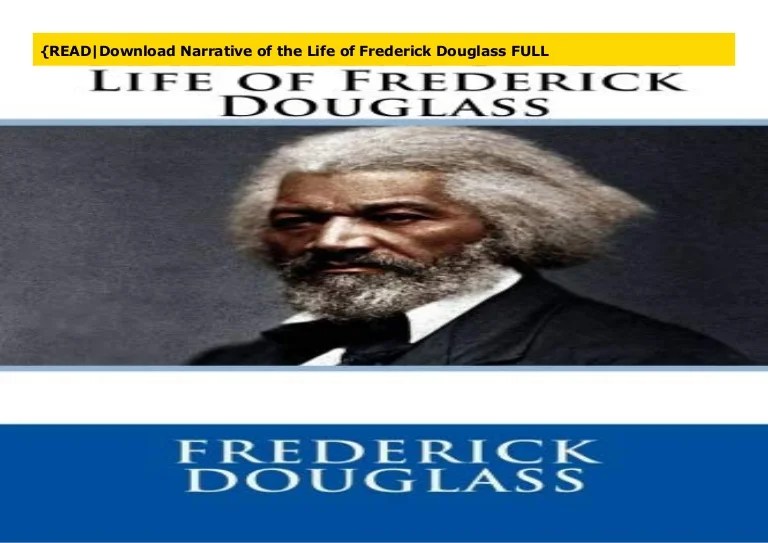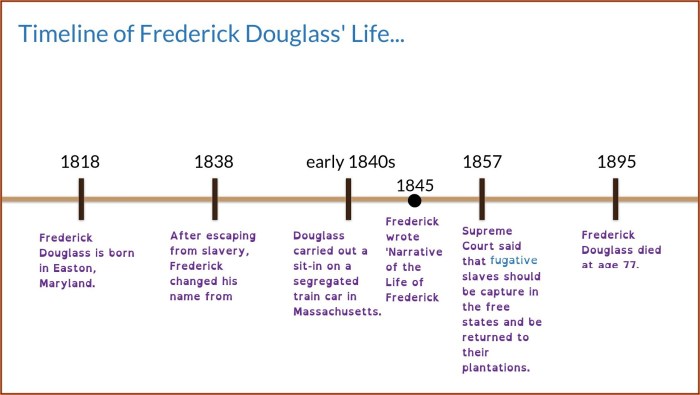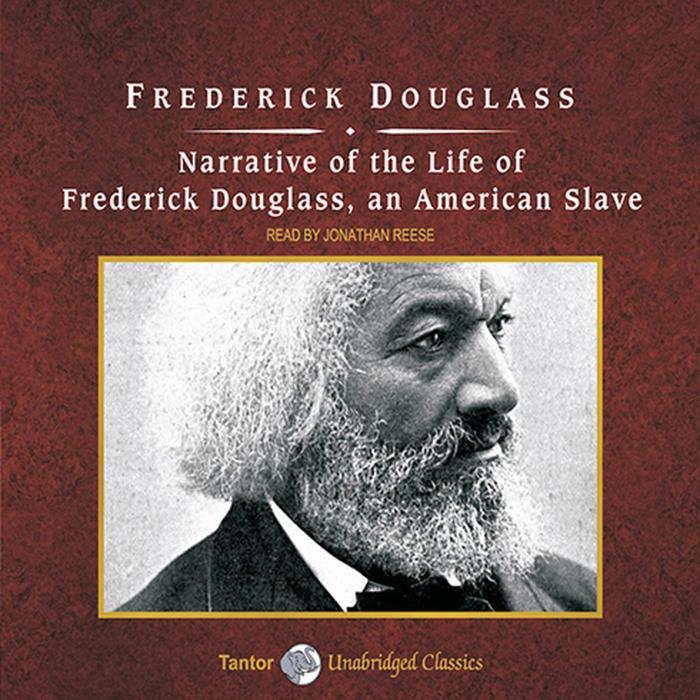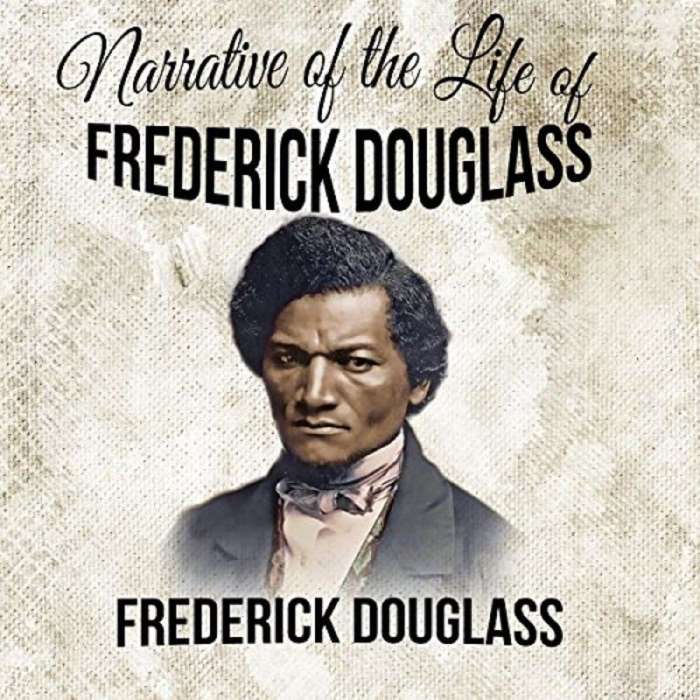Narrative of the life of frederick douglass citation – Narrative of the Life of Frederick Douglass: An American Slave, written by Frederick Douglass in 1845, stands as a seminal work in American literature and history. This powerful autobiography chronicles Douglass’s experiences as a slave in the antebellum South and his subsequent journey to freedom and abolitionism.
Douglass’s narrative is not merely a personal account but a meticulously crafted literary work that employs vivid imagery, emotional language, and a keen understanding of the power of storytelling. It is a testament to the resilience of the human spirit and a searing indictment of the horrors of slavery.
1. Narrative of the Life of Frederick Douglass: Narrative Of The Life Of Frederick Douglass Citation
The Narrative of the Life of Frederick Douglass, an American Slave, Written by Himself is a powerful and influential autobiography that recounts the experiences of Frederick Douglass as a slave in the antebellum United States. Published in 1845, the narrative became a bestseller and played a significant role in the abolitionist movement.
Douglass’s narrative is a firsthand account of the horrors of slavery, providing a vivid depiction of the physical and psychological brutality that slaves endured. It exposes the hypocrisy of a nation that claimed to uphold the ideals of freedom and equality while perpetuating a system of oppression.
Significance as a Historical Document
The Narrative of the Life of Frederick Douglass is a valuable historical document that provides insights into the daily lives of slaves in the United States. Douglass’s detailed descriptions of the conditions on the plantations, the treatment of slaves, and the resistance they faced are essential for understanding the history of slavery and its impact on American society.
Main Themes and Events
The narrative covers a wide range of themes, including the dehumanizing effects of slavery, the power of education, the importance of resistance, and the struggle for freedom. Douglass recounts his experiences from his childhood as a slave in Maryland to his escape to freedom in the North.
Impact on the Abolitionist Movement
The Narrative of the Life of Frederick Douglass had a profound impact on the abolitionist movement. Douglass’s powerful storytelling and his ability to articulate the horrors of slavery helped to sway public opinion and galvanize support for the cause of abolition.
2. Frederick Douglass’s Life and Experiences

Early Life and Experiences
Frederick Douglass was born into slavery in Maryland in 1818. He was separated from his mother at a young age and subjected to harsh treatment and abuse. Douglass’s early experiences instilled in him a deep hatred of slavery and a determination to escape.
Journey from Slavery to Freedom
In 1845, Douglass escaped to freedom in the North. He became an active abolitionist and used his experiences to advocate for the end of slavery. Douglass traveled extensively, giving speeches and writing articles that exposed the horrors of slavery and called for its abolition.
Challenges and Obstacles
Throughout his life, Douglass faced numerous challenges and obstacles. He was threatened with violence, imprisoned, and even had his home burned down. However, he never wavered in his commitment to the cause of abolition.
3. The Power of Storytelling

Use of Storytelling
Douglass uses storytelling to convey his experiences and perspectives in a powerful and engaging way. He employs vivid imagery and emotional language to paint a vivid picture of the horrors of slavery and the struggles for freedom.
Impact of His Narrative
Douglass’s narrative had a profound impact on public opinion and understanding of slavery. His ability to articulate the experiences of slaves in such a powerful and personal way helped to change the way people viewed slavery.
4. Literary and Historical Significance

Literary Qualities
The Narrative of the Life of Frederick Douglass is a literary masterpiece that combines powerful storytelling with historical significance. Douglass’s use of language, imagery, and structure creates a narrative that is both compelling and informative.
Place in American Literary Canon
The narrative has had a lasting impact on American literature. It is considered one of the most important works of American autobiography and has influenced generations of writers.
Historical Context
The narrative was written during a time of great social and political upheaval in the United States. It provides insights into the complexities of slavery and the struggle for freedom in the antebellum era.
5. Impact on American History

Role in Shaping American History
The Narrative of the Life of Frederick Douglass played a significant role in shaping American history. It contributed to the growing abolitionist movement and helped to galvanize support for the end of slavery.
End of Slavery, Narrative of the life of frederick douglass citation
Douglass’s narrative was a powerful force in the movement to end slavery. It helped to convince many Americans of the evils of slavery and the need for its abolition.
Lasting Legacy
The narrative continues to be relevant today, providing insights into the history of slavery and the struggle for freedom. It is a reminder of the importance of fighting against oppression and injustice.
Detailed FAQs
What is the significance of the Narrative of the Life of Frederick Douglass?
The Narrative of the Life of Frederick Douglass is a powerful autobiography that chronicles Douglass’s experiences as a slave in the antebellum South and his subsequent journey to freedom and abolitionism. It is a seminal work in American literature and history, providing a firsthand account of the horrors of slavery and the resilience of the human spirit.
How did the Narrative of the Life of Frederick Douglass impact the abolitionist movement?
The Narrative of the Life of Frederick Douglass was a powerful tool in the abolitionist movement. Douglass’s vivid descriptions of the brutality of slavery and his eloquence as a speaker helped to sway public opinion against the institution of slavery.
What are the literary qualities of the Narrative of the Life of Frederick Douglass?
The Narrative of the Life of Frederick Douglass is a well-crafted literary work that employs vivid imagery, emotional language, and a keen understanding of the power of storytelling. Douglass’s use of literary devices, such as foreshadowing and symbolism, adds depth and complexity to his narrative.
